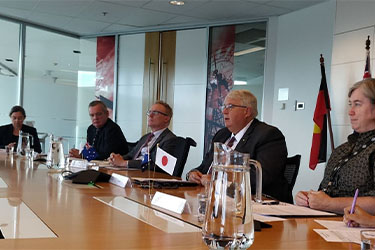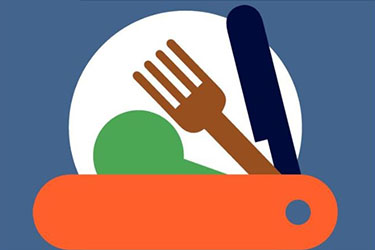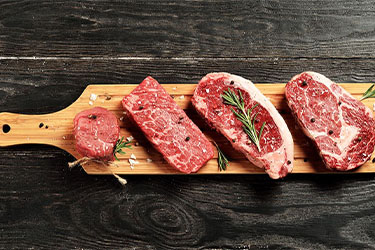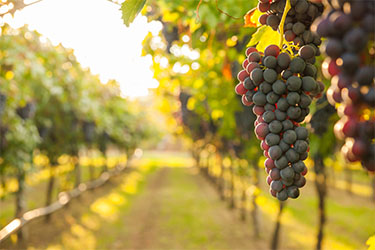Agricultural trade matters provides an overview of what the Department of Agriculture, Water and the Environment and the Australian Government are doing to support international agricultural trade.
This is the current edition, published March 2021.
To receive an email notification when future editions are made available, subscribe to Agricultural Trade Matters.
News
Australia’s new agricultural export legislation
Commencement of the Export Control Act 2020 and the Export Control Rules 2021
The Australian Government has introduced a new legislative framework for agricultural exports which commenced on Sunday 28 March 2021 at 3am Australia Eastern Daylight Time (AEDT). It comprises the Export Control Act 2020 (the Act) as the centrepiece of the framework and the Export Control Rules 2021 (the Rules).
The Rules set out the operational details for regulating the export of specific goods from Australia. They are based on the Orders and Regulations for various commodities under the Export Control Act 1982 and the Australian Meat and Live-stock Industry Act 1997. The Rules will replace the current legislation when the new legislation commences.
The new legislation streamlines and consolidates the export-related requirements included in more than 20 Acts and 40 pieces of delegated legislation.
Read more about Australia’s new agricultural export legislation
The benefits of the new legislation include that it will:
- be more relevant, responsive, and efficient for exporters, farmers, and other primary producers,
- provide strong regulation, while removing duplication and ensuring consistency where possible, and
- clarify and simplify regulatory requirements, such as those that relate to authorised officers.
The new framework will continue to ensure:
- exported goods meet importing country requirements
- compliance with government and industry standards
- traceability through the supply chain where required
- the integrity of goods and the accuracy of applied trade descriptions and official marks.
Deputy Secretary of the Department of Agriculture, Water and the Environment, David Hazlehurst, said that the new agricultural export legislation reflects the outcome of extensive consultations with stakeholders including farmers, other primary producers, exporters, trading partners, representatives from State and Territory governments and other government departments.
‘Thank you to everyone who has provided feedback on the new export legislative framework. Your feedback has helped to ensure that the legislation is clear and fit for purpose - supporting growth and innovation while maintaining the level of regulatory oversight trading partners expect’.
More information on Australia’s new agricultural export legislation can be found on the department’s website at Improving Agricultural Export Legislation.
High level talks reinforce strength of Australia-Japan agricultural ties
The Secretary Andrew Metcalfe, Deputy Secretary David Hazlehurst and DAWE officials attending the 7th Australia-Japan High Level Dialogue.
On 19 February, Australia and Japan agreed at the 7th Australia-Japan High Level Dialogue to progress the Statement of Intent (SOI) on Agri-Food Value Chains.
Secretary Andrew Metcalfe AO, who co-chaired the Dialogue virtually with Japan’s Ministry of Agriculture, Fisheries and Forestry, Vice Minister Osawa, said the SOI was now a step closer for consideration by Australia and Japan’s agriculture ministers.
Once agreed, the SOI will solidify the commitment of both countries to work together on supply chain resilience, export modernisation and future food systems to enhance market access and expansion opportunities.
Read more about High level talks reinforce strength of Australia-Japan agricultural ties
Australia’s agricultural trade with Japan was valued at $5.7 billion in 2019-20, a 15 per cent increase from 2015-16 when we entered into our bilateral agreement – the Japan-Australia Economic Partnership Agreement.
Australia is an important supplier to Japan of beef, woodchips, cheese, wheat, offal, fodder, and barley.
For more information on trade and market access, visit the department’s website.
OECD releases food report on better policies for food systems
OECD report: Making Better Policies for Food Systems
In January this year, the Making Better Policies for Food Systems report was released by the Organisation for Economic Co-operation and Development (OECD).
This report recognises the ongoing stress on our food systems, which must address the triple challenge of providing nutritious food, livelihoods, and better environmental sustainability.
‘This report acknowledges the friction between facts, interests and values that governments and policy leaders have to juggle when developing policy for food systems’ said Simon Smalley, Minister Counsellor for Agriculture in London.
Read more about OECD releases food report on better policies for food systems
The report uses case studies on gene-editing in the seeds sector, nutrition issues in the processed food sector and GHG emissions in the livestock sector to focus on trade-offs and synergies.
It recognises that governments and citizens gain, not just food security and nutrition from food systems, but also livelihoods for those involved in these activities and environmental sustainability.
The report doesn’t offer quick fixes, but useful suggestions to better manage the trade-offs to help policy leaders build better food systems. This includes advice on balancing diverging interests and methods to resolve differences over facts, interests, and values.
‘It’s important to remember the multiple pressures on our food systems to deliver jobs, quality food and resources for the next generation. These trade-off focused messages will be useful for Australia in developing its own position on food systems prior to participating in the UN Food Systems Summit later in 2021’ said Lynda Hayden, Australia’s representative in the UN Food and Agriculture Organization.
The Making Better Policies for Food Systems report is available on the OECD website.
Extended shelf life for red meat to Saudi Arabia
Top quality Australian beef
The Saudi Food and Drug Authority (SFDA) has increased the shelf life for chilled vacuum-packed beef and sheep meat following collaborative advocacy and a technical submission from the Australian Government and industry.
The increase of shelf life to 120 days for beef and 90 days for sheep will facilitate sea transport of quality and safe Australian meat exports to Saudi Arabia and help reduce waste and improve food security.
Agreement with Saudi Arabia on the underlying scientific research is a great win for rules-based trade, and Australia will continue to engage the other Gulf States (Qatar, Kuwait, Oman and Bahrain) to make the case for the same shelf-life conditions across the region.
Read more about Extended shelf life for red meat to Saudi Arabia
‘The increase to shelf life is great win for Australia and should be influential in the region - in 2020 the total value of red meat to the Gulf States was worth over AU$870 million. It demonstrates the value of close collaboration between the department, including our Agriculture Counsellor in Dubai; the Australian Meat Industry Council; Meat & Livestock Australia; and Saudi Arabian authorities.’, said Dr Anna Somerville, Assistant Secretary, Export Standards Branch.
For more information on trade and market access, visit the department’s website.
Horticultural exporters to Vietnam now have access to more onshore irradiation facilities
Aussie grapes that will be heading to Vietnam
Australian horticultural exporters to Vietnam now have access to two onshore irradiation treatment facilities which will increase speed to market and decrease export freight costs for farmers in southern growing regions.
Vietnam has provided interim approval to receive produce from Australia’s newly established Merrifield irradiation treatment facility in Melbourne. In some cases, Australian fruit will be arriving in Vietnam just 72 hours after picking. Approval to receive produce from Melbourne opens more access opportunities for growers in a key emerging market.
Vietnam already receives produce from the Brisbane treatment facility and Australian farmers have exported over 10,000 tonnes of premium fresh produce to Vietnam through the Brisbane facility since its approval in 2016.
Read more about Horticultural exporters to Vietnam
‘Vietnam and Australia have worked closely to expand the use of irradiation as an effective and safe biosecurity treatment. Irradiation is becoming an increasingly important treatment option for many exporters due to its speed, capacity, and ability to maintain the quality of product. It is a chemical-free and heat-free process helping Australia continue to deliver sustainable, safe fresh produce’ said Peter Creaser, Assistant Secretary, Biosecurity Plant Division.
Visit the department’s website for more information on trade and market access.





